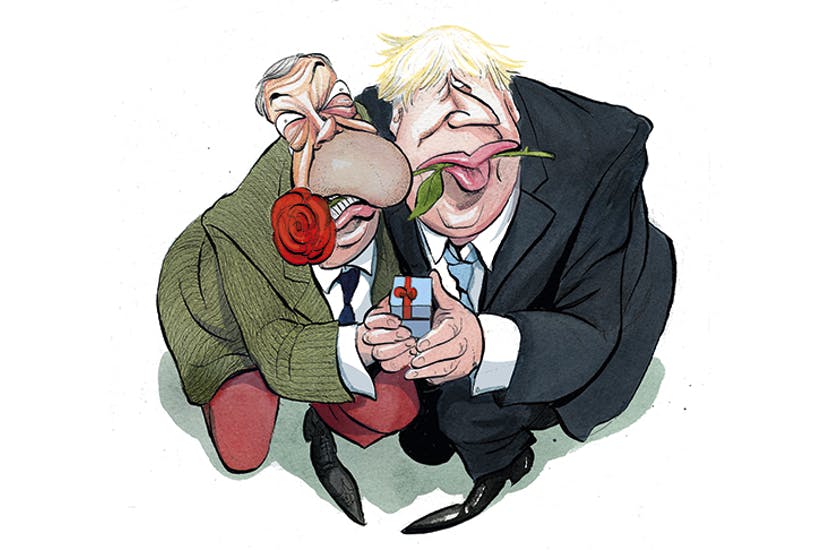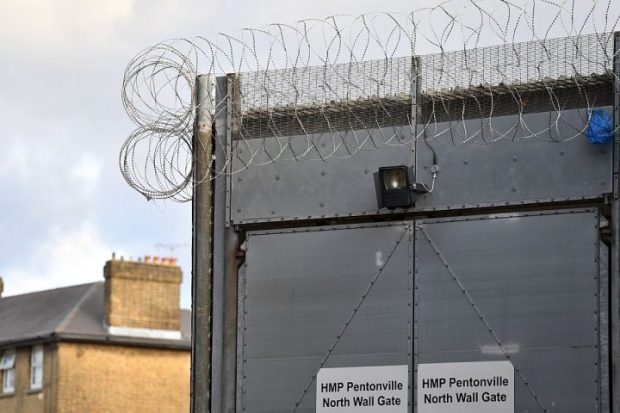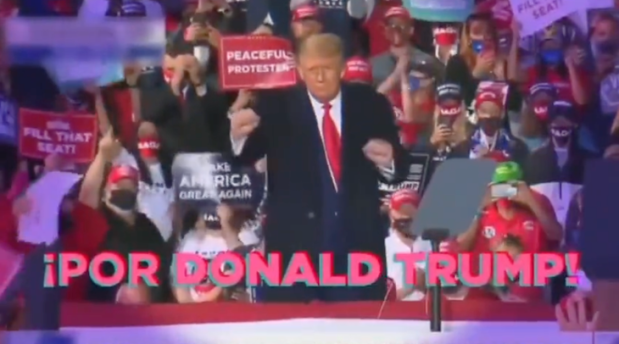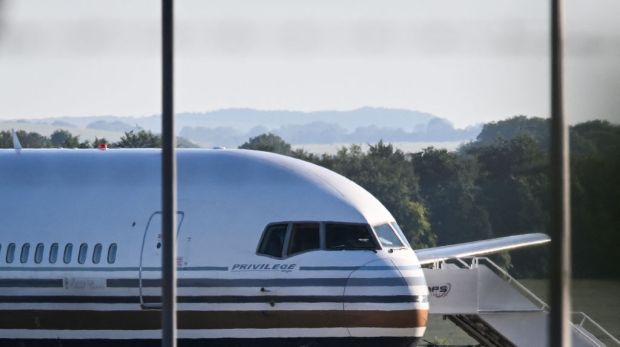Nigel Farage last painted himself into a corner at the end of the 2015 general election. Now he has done it again. And Farage’s only hope is that Brexit voters can save him from himself.
In the lead-up to that election, Farage foolishly spiced up a serialisation of his autobiography by declaring it would be ‘curtains’ for him – and that he would quit as Ukip leader – if he failed to win in South Thanet.
Of course, he didn’t win. And early the next day, Farage duly called a clifftop press conference to declare that, being a man of his word, he was indeed standing down as Ukip leader. The irony was that the national election result he had done so much to shape meant his long-cherished referendum on leaving the EU was now in the offing, just as he was relegating himself into the ranks of has-beens.
A few months later, Farage was back to ride to the rescue. Suzanne Evans (who had been installed as interim party leader by personal diktat) Paul Nuttall (Farage’s loyal but overlooked deputy) and Douglas Carswell (the party’s one MP) were all deeply put out with Farage, feeling that he had treated the party purely as a vehicle for his personality cult.
Some four and a bit years later, the Farage ego has once again backed itself into a corner. This time it is difficult to work out how he will escape. There is no outcome of this general election that will leave his reputation enhanced. If the Tories fail to win a majority, then the Brexit party – despite getting an embarrassingly low vote share and zero MPs – will be blamed by millions of Leavers for killing their dream.
If the Tories do get a majority, Farage will be seen as a tangential figure decisively seen off by Boris Johnson when their antlers finally locked.
Farage’s current predicament is rooted in a disastrous strategic decision he and an inner-circle of yes men took on the day Boris Johnson unveiled his new Withdrawal Agreement. Within minutes (possibly before the document had even been published) they decided to rubbish Boris’s deal as “not Brexit”. Farage bet the farm on being able to win that argument in the country. His aim was that the Brexit party would then take permanent possession of the huge Leave electorate, much of which had coalesced around it at the European elections.
Soon the Brexit party resorted to depicting things that applied only in the transitional period as if they would be permanent. There were claims Britain would be locked forever in economic alignment with the EU, unable to pursue an independent foreign policy or be in charge of what happened in UK fishing waters. It was even said the new Northern Ireland-only features could spell the end of the Union.
This position led inexorably to the logic that the Brexit party, as the only true Brexit option, must stand in every British mainland constituency at the general election. All other options – from standing aside altogether with a warning to Johnson that the Brexit party would be on his back during the next phase of future relationship negotiations, to fighting only a limited number of safe Labour seats in abandoned former industrial and coastal towns – were dismissed.
But despite stirring up some of his Twitter followers against the Boris deal, Farage lost the argument among Leavers as a whole. Long-standing campaigners for Brexit, such as Simon Richards of the Freedom Association, Martin Howe QC – and indeed me – gave more balanced assessments. It was clear to us and many others that in the circumstances Johnson had done well. He had achieved an agreement worth taking. Even Arron Banks, Farage’s erstwhile closest confidante, accepted the choice was between taking the win or seeing Brexit lost altogether.
So the Brexit party’s poll ratings began their long journey south. Within its own ranks, voices of dissent soon began to emerge. John Longworth and Lance Forman, two sensible MEPs who had already chalked-up successes in life that did not depend on riding Farage’s coat-tails, were two notable examples. Brexit party parliamentary candidates began to stand down of their own volition, fearful they would otherwise cause a “Remain Alliance” to win a Commons majority.
Farage then grabbed a way out when Boris Johnson released a video confirming two things he had already said: that his ambition was to end up with a Canada-style free trade agreement with the EU; and that he would not extend the transitional period beyond the end of 2020. Farage declared Boris had changed tack and his deal might lead to proper Brexit after all, so the Brexit party would stand down in every seat the Tories won in 2017.
This was perverse. It meant determined Brexit rebels like Greg Clark in Tunbridge Wells were given a free run, while long-time leaver Tories standing in key target seats faced a Brexit party challenger. It also amounted to Farage declaring that in half the country people should vote Tory because the Tories had secured a deal that could deliver Brexit, while in the other half saying they should vote Brexit party because the Tory deal was a sell-out.
And so the Brexit party ratings kept falling. 12 per cent became 10 per cent. Eight per cent became four per cent. It was soon obvious to the vast majority of voters that the party was not looking at a Ukip 2015 sort of showing (13 per cent vote share and one seat) but at a Ukip 2010 sort of showing (three per cent vote share and no seats).
Yet if the Tories fall short of a majority, the distribution of that three per cent national share will almost certainly be found to have been a decisive factor.
The latest Brexit party election broadcast is, as ever, notable for slick camera work and high production values. But where its videos were seen as cutting edge back in the spring, this one seems out of time.
It is based on “hero” shots of Nigel (who else?) walking through an industrial setting and claiming there are seats where the Tories have no chance of winning, but where the Brexit party can win. Back in the heady days of June, when his party vied with the Tories in the low twenties in the polls, that might have made sense. Now, leading a party whose support as measured by the pollsters is rarely more than a tenth of recorded Tory support, it looks ludicrous.
Nigel Farage’s giant ego and profile has so often been the salvation of Brexit. It enabled Ukip to wield immense pressure for the referendum during the 2010-2015 parliament. It also meant Farage could be a powerful figurehead for resistance to Theresa May’s woeful Brexit deal early this year, culminating in her departure and the change of direction from the Tories after Farage’s brilliant Brexit party innovation.
But it has sometimes put Brexit in peril too, such as when he fought tooth and nail to run the designated campaign in the 2016 referendum, despite his lack of appeal to crucial voters who had not made up their minds between the competing claims of leave and remain.
It is up to us lesser mortals of Brexit to decide when to go with Farage and when to set him aside in the greater interests of the cause. It was heartening to see this week a group of MEPs elected under the Brexit party banner showing the guts to acknowledge that this is a time for setting aside.
One hopes that leave voters as a whole will save Nigel Farage from himself on 12 December by electing a majority government that can take this country out of the European Union. If that happens then history – despite the political affiliations of most contemporary historians – will be forced to rank him among the most influential British political figures of the early 21st Century. If it doesn’t then, really, what will it all have been for?
Got something to add? Join the discussion and comment below.
Get 10 issues for just $10
Subscribe to The Spectator Australia today for the next 10 magazine issues, plus full online access, for just $10.




















Comments
Don't miss out
Join the conversation with other Spectator Australia readers. Subscribe to leave a comment.
SUBSCRIBEAlready a subscriber? Log in